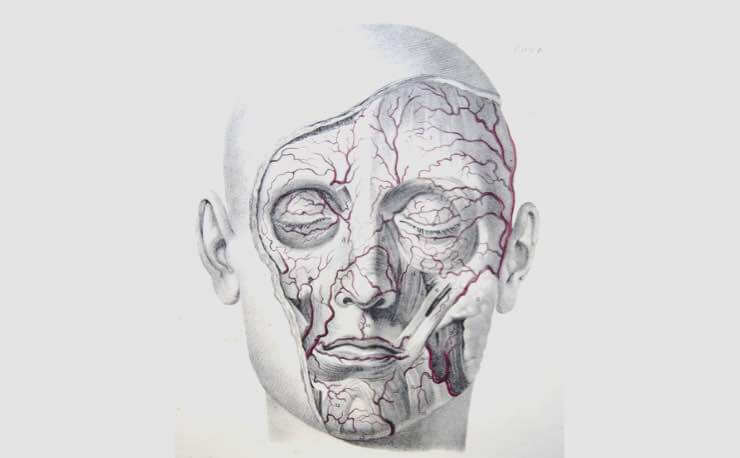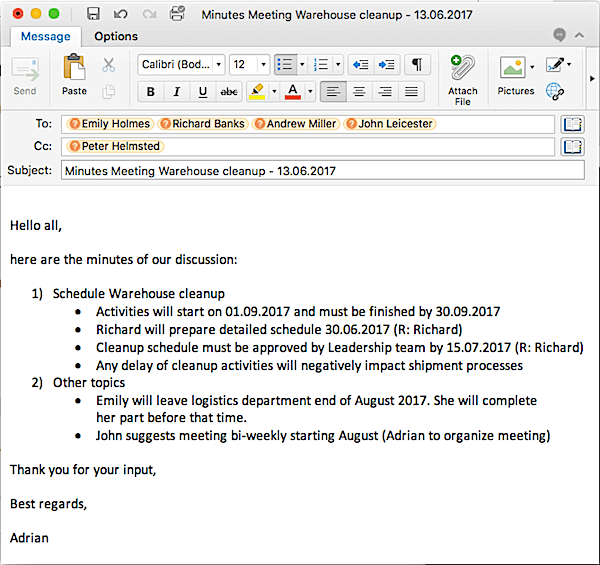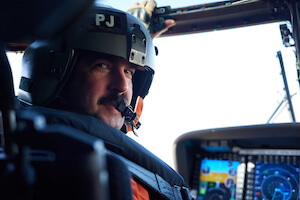I will never forget the day when my team member came by to say: “I loved to work with you! And I learned so many things from you, like being persistent”. Her comment meant a lot to me because I knew I had found the right management style.
I had never thought about the qualities a project leader like me should have. But my gut told me that I should to be both highly effective, but also create an environment that people enjoyed working in. And this was the right approach: We completed all projects in time and budget, and the team spirit remained terrific over time.
In this article we’ll look at the specific traits a project manager should have. The ideas come from my own experience and from observing other project managers.

It’s about the combination of skills
Back in highschool I wanted to be a pilot. The amount of responsibility and the status of the job appealed to me. (I did not get accepted to flight school, but later traveled on business class just behind the pilots. Not bad either.)
What I learned talking to pilots was that pilots are expected to have a specific combination of skills, ranging from interpersonal skills to technical understanding and good eye-hand coordination. You don’t have to be excellent in each category, but you need to be good enough. Apparently, not many people have this unique combination of skills.
With project managers, it is similar. There is no one skill that separates the average project managers from the best ones. It’s the combination of skills that makes a good project manager.
Here are the qualities a project manager should have:
- People Person and Relationship Builder
- Master Communicator
- Planning Wizard
- Chief Coordinator
- Problem-Solving Genius
- Trusted Leader
- Assertive Diplomat
- Cool-headed Captain
- Person of High Integrity
People Person and Relationship Builder
Before I became a project manager myself, I had the opportunity to observe the best project leaders at their work. What I found most impressive was how smoothly they interacted with other people: Team members, stakeholders, customers — basically with people at all levels. It seemed they could become friends with anybody!
This wasn’t a coincidence. To be successful in their job, project managers must be able to establish relationships with people and build rapport. In fact, people skills are their most valuable asset. Why?
- Project managers have to deal with tons of people every day.
- Projects are typically unpopular, and the only way to motivate a team is by building great team spirit, which requires people skills.
- Project managers are dependent on other people’s resources: money, manpower, time, and the only way to get the needed support is by establishing good relationships with the decision makers and managers.
- Project managers have zero formal authority.
How do the best project managers build trust with people? They spant a significant amount of time engaging with people on an informal level talking about personal stuff — family, hobbies, holidays … whatever.
For example, when checking in with a team member, they don’t start with “Jim, have you set up the database yet?”. They might start the conversation with “Hey Jim, how are you? How’s your weekend been?”. Can you see what this does? It gets Jim to feel great because who doesn’t like talking about himself? And it’s going to strengthen the bond between himself and his project manager.
Once a PM has established trust with everybody in the project, the result will be greater team performance and better quality of work. People will be more committed to the project goal and are more likely to give their best.
People skills of top project managers:
- The best project managers are excellent at building relationships
- They understand how to deal with people on any level – from the receptionist up to the CEO
- They leverage relationships to achieve the desired outcome.
Master Communicator
Projects essentially are a gigantic communication effort. That’s because you have to coordinate dozens (or even hundreds) of people and make sure everbody understands what they have to do and what your expectations are in terms of quality and time. This needs to be communicated in a clear way, leaving no room for ambiguity.

Every now and then, issues will pop up and then project managers have to facilitate the process for finding a solution. This again requires communication: getting background information about the issue and guiding the team through the process by asking the right questions and giving suitable orders.
Then there’s ongoing communication every project manager is expected to do: keeping stakeholders and your own management informed about the project’s progress.
The thing is: communication is really challenging and hard to get right. Examples:
- Most people won’t respond to an email if it’s not clear what you want.
- Some people won’t understand the same thing as you do.
- Other people will be offended by a phrase in your email although you had only good intentions. That’s normal when you work with a diverse group of people.
Good project managers are aware of those challenges. They able to communicate in a very clear manner and by considering the questions, fears and concerns of the other side. They also communicate proactively, which means they don’t wait until they pressed for an update or an explanation.
Communication habits of the best project managers:
- They communicate proactively
- They communicate clearly, leaving no room for ambiguity
- They use all modes of communication effectively: face to face, email, phone
- They are empathetic about how people think and feel about a topic (and tweak their communication accordingly)
Planning Wizard
Obviously, planning and organizing is what a project manager has to be really good at. Otherwise any project will turn into chaos quickly.
Planning is essentially the ability to look ahead and to be able to anticipate how a series of activities will evolve.
We all do this in small scale when travelling: We look at our travel schedule and we see our plane is going to arrive late at night. So we think: hmm, I wonder if there will still be bus service that hour. And then we see the last bus leaves a few minutes after arrival. So we get the number of the local cab service that we can order a taxi quickly. Then you check if the hotel has a 24 hour reception service or not. Fortunately it has. But there’s no food being served at that hour and nearby restaurants will be closed. However, you will be hungry after your long flight. So you prepare some sandwiches or you pre-order food that is being brought to your room. You do all this so everything is going well.
Planning a project is similar, just it’s on a much larger scale, involving hundreds of people, thousands of activities and project budgets in the millions. What separates the average project manager from the top PM is that he/she is much better at analyzing complex activities, spot any dependencies and plan the project in a way so it doesn’t break when one activity gets delayed.
Of course a lot depends on experience and more seasoned project managers will also be better planners. But it’s also the ability to mentally visualize and “see” the plan evolving and spotting potential issues. Lastly, a good PM understands how to bring the right people together and collectively work out a solid project plan.
Planning skills of the best project managers:
- They are able to anticipate how events will turn out
- They see connections (dependencies) between activities
- They leverage the experience and knowledge of the team to create solid project plans
- They are able to make good estimations (based on experience)
- They ensure that the delay of one task won’t put the entire schedule at risk
Chief Coordinator
Once a project has gone from planning to execution, it’s mainly the coordination skills of the project manager that determine the success of a project. Coordination is about being able to prioritize and arranging things in a way that makes most sense for the project. The challenge you face as project leader is you must coordinate dozens of things at the same time and make sound decisions under pressure:
- Are we going to do x first or y?
- If <task> fails, what can we do so the project doesn’t get stalled?
- Who do I need to bring in to fix this problem?
The stress level can be extremely high and the mental and physical tension is huge. Still, a good project manager must be able to operate well under those conditions and keep a cool head even when — all of a sudden — problems pile up and your coordination effort goes from 10% to 100%.
What has helped me always in my work was I have a good memory. I would never forget anything that I knew I had to do. People call you when you’re totally busy and they say “Hey, you should look at this issue.” and you’re already totally busy but you get yet another task on top of your list.
Coordination skills of top performing project leaders:
- They are able to coordinate large teams with hundreds of people
- They are able to prioritize quickly
- They are able to quickly assess different options
- They have excellent memory (and keep the overview)
- They are able to bring the right people together (to solve an urgent issue or to work on a task)
- The are able to juggle dozens activities at the same time
Problem Solving Genius
What is problem solving about? You see there’s a problem. Then you ask yourself ‘what can we do to fix this problem?’. Unfortunately in projects, the most convenient solutions are out of reach:
- Hiring additional staff to balance resource gaps
- Getting extra budget to build the perfect solution
- Extending the project schedule to analyze the problem further
- Taking a 4-week yoga retreat to meditate over the problem and wait for inspiration from heaven
ALL NOT POSSIBLE!
So, you have to be creative and come up with other ideas to fix your issue. This is where top project managers excel at. They come up with all possible permutations, quickly assess the pro’s and cons of each option and then facilitate the process to come to a solution.
Permutations: When you face a project issue, brainstorm all the options you have to solve the problem.

The rule: No ever so odd solution will be discarded, even if it hurts or if it goes against an organization’s standard way of doing business. Sometimes getting to a solution may involve conflict. Good project managers don’t shy away from that.
Problem solving skills of top project managers:
- They always remain confident, even in case of big issues
- They ask “What can we do about this?” instead of “Why did this happen?”
- They can think in permutations (options)
- They come up with the right questions to solve a problem
- They are able to think outside the box
- They accept conflict if it can’t be avoided
Trusted Leader
Leadership skills are the kind of skills that are hard to describe. But once you’ve worked with a good leader you know what it feels like.
Here’s how I would describe what leadership is about: A leader is somebody who can easily build relationships with people. It is also someone who is great at coming up with new ideas and strategies for getting things done. Someone who enjoys solving problems instead of sitting back and complaining (like most people). Lastly, a leader is someone who enjoys guiding a team of people from where they are now towards a solution. Guiding involves motivating people to give their best, providing coaching and removing obstacles.
These attributes also apply for a project manager, who is already a leader by definition. I’ve observed that good project leaders actually enjoy leading people (and being around people). They also have high standards, both in terms of work results but also with regards to behavior.
Leadership qualities of top project managers:
- They always come up with new ideas and execute upon them
- They enjoy working with people
- They are good at motivating and coaching people
- They are a role model for others
- They have high standards – both in terms of work and integrity
Assertive Diplomat
How do you get people to follow your orders? To give you what you need? You have to be assertive. This means you have to behave and talk in a way that makes people understand they can’t play games with you. That you won’t back down until you get what you want. I know this sounds harsh. But for project managers being assertive is absolutely crucial. Otherwise nobody will take you serious and your job will consist of one failure after the other.
What are examples of assertive behavior? It starts with being persistent. When a manager rejects your request with “No, not possible” you don’t just say “Ok, fine” and walk away. You make another attempt, giving more reasons about why you need what you’re asking for. And possibly you need to do make a 3rd and 4th attempt ….
Body language matters a lot, too. You’ve probably seen people whose lack of confidence shines through via their posture, hand gestures or facial expression. Project managers must come across as confident and exude power through body language and through what they say.
Want to become more assertive? Tony Robbins has advice for you:
The issue with being assertive is that you may come across as aggressive if you’re taking it too far. This is not what you want and good project managers are able to fine-tune their style so that they don’t appear aggressive. They always remain diplomatic.
The best project managers are assertive leaders:
- They are persistent. A “no” isn’t taken as a no but as an invitation to further negotiation.
- They are assertive without being aggressive
- They use body language and voice to express authority
- They choose their words carefully (and avoid sounding weak or submissive). For example, if you say “I just wanted to know if…”, the word ‘just’ reveals a lack of confidence. Leave out the ‘just’ and you’ll appear more assertive.
Cool-headed Captain
When you manage a project, sooner or later you will find yourself in situations that feel hopeless. Everything is falling apart: work is getting delayed, technical issues pop up, your customer is going crazy because he’s afraid the project will crash.
In such moments project managers must control their emotions. They must avoid to make quick, unreflected decisions. Rather, they should stay calm, consider the options they have and work out plan to take the project out of the danger zone.

Cool-headedness is an important trait of a project manager. That’s because our decision making is much better when we are calm and controlled. Also, if the project manager appears nervous this will usually influence the team and cause anxiety among team members, which again can produce more problems.
Summary:
- Good project managers stay cool even under stress.
- They don’t let emotions take over their thinking.
- They don’t make quick, unreflected decisions when under pressure.
Person of High Integrity
Project managers have an important job. If you think about the huge projects they manage, they are essentially building a company’s future. They are being entrusted huge amounts of resources, including millions of dollars that must be spent with care. They are also a company’s ambassador when interacting with clients or vendors. The best employees are being assigned to projects, and they are expected to treat those people in a good way. Furthermore, project leaders also have access to personal and confidential information.
And you don’t want anybody on the job who you can’t trust 100%. Right?
That is why …
The best project managers must have integrity
- They are role models for others
- They don’t talk bad behind other people’s back
- They keep their promises
- They treat other people with respect
- They are committed to the truth, even if it’s painful
- They are ok to admit own mistakes
- They treat information confidentially
Summary
To be a good project manager, you have to be committed to the job 100%. You have to like the work even though it’s stressful and there’s little appreciation for what you do. Next, you have to care about your project as if it was your ‘baby’. You also need to care about the people that work for you. Because in the end it’s the team effort that makes a project a success.
What you also need to have is the right combination of skills, first of all leadership skills but also comunication and problem-solving ability. Based on my experience I can say that most of those qualities can be developed through practice. Are you committed to become an excellent project manager?
Author
-
Hi, I’m Adrian, a Senior Project Manager and the Creator of Tactical Project Manager, where I teach a pragmatic approach to project management. Led large-scale IT and business projects for over 10 years. My goal is to enable you to lead any project with confidence.
View all posts



